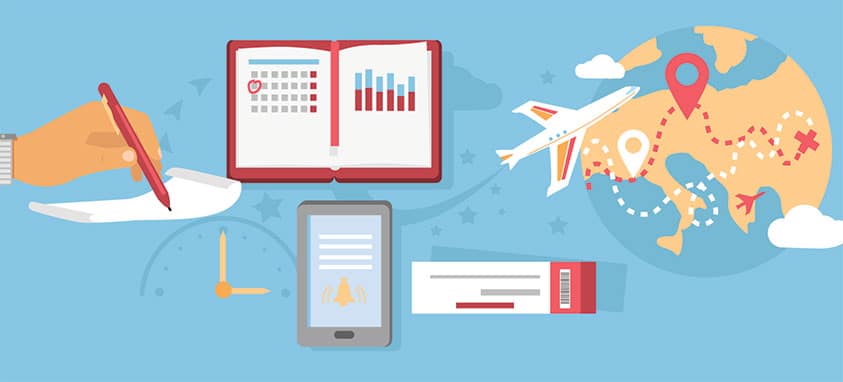Artificial Intelligence in Tourism Industry: Revolutionising the Way We Travel
Are you tired of spending hours on end researching and planning your next vacation? Do you wish for a more personalised and efficient travel experience? Look no further, as artificial intelligence (AI) is revolutionising the tourism industry.
From virtual travel assistants to AI-powered tourist attractions, AI is transforming every aspect of travel. This technology is not only making the process of planning and booking a trip easier, but it’s also providing tourists with a more immersive and memorable experience.
The Impact of AI on the Tourism Industry
The tourism industry is one of the largest industries in the world, and AI is having a significant impact on how it operates. Here are just a few ways in which AI is changing the face of tourism:
- Personalized travel recommendations: AI algorithms analyze tourists’ preferences and history to suggest tailored travel itineraries and activities.
- Virtual travel assistants: AI-powered chatbots and virtual assistants can assist with everything from booking flights and hotels to providing recommendations and answering questions.
- Predictive analytics: AI-powered predictive analytics helps tourism companies make data-driven decisions and anticipate customer needs, leading to improved customer satisfaction.
- Intelligent marketing: AI algorithms can analyze customer data to create personalized marketing campaigns, increasing the likelihood of successful bookings.
- Smarter tourist attractions: AI technology is being used to create smarter tourist attractions, such as interactive museums and theme parks, providing tourists with a more engaging and immersive experience.
Benefits of AI for Tourists
Artificial Intelligence (AI) has brought about many changes in the way tourists plan and execute their travel plans. It has made the process of traveling more convenient and efficient. AI has made it possible to personalize travel experiences to a great extent, allowing tourists to make informed decisions based on their individual preferences. Some of the major benefits of AI for tourists are:
Convenient and fast travel booking: AI-powered travel booking platforms have made the process of booking flights, hotels, and other travel-related services much easier and faster. Tourists can compare prices and find the best deals with just a few clicks.
- Personalized recommendations: AI algorithms can analyze tourists’ past travel patterns and preferences to provide personalized recommendations for destinations, activities, and even dining experiences.
- Improved safety: AI can be used to monitor tourist activity and provide emergency response in case of any safety concerns. For example, some hotels use AI-powered security systems to detect potential security threats.
- Virtual tours and experiences: AI technology has made it possible for tourists to take virtual tours of destinations, preview attractions and even participate in virtual experiences. This is especially helpful for tourists who want to plan their trips in advance.
- Chatbots for 24/7 support: AI chatbots are now commonly used in the tourism industry to provide 24/7 customer support. Tourists can ask questions, get information on local attractions, and make reservations without having to wait for human assistance.
- Smart city management: AI is being used by cities to manage traffic, provide real-time information on public transportation and even predict and prevent crime. This has made urban areas safer and more tourist-friendly.
- Accessibility: AI-powered technologies such as voice-activated devices, mobile apps, and smart devices are making travel easier and more accessible for people with disabilities and mobility issues.
Challenges and Opportunities for the Tourism Industry
Artificial intelligence (AI) has been rapidly changing the way we live and work. AI is transforming the tourism industry in the real world. AI has the potential to revolutionize the travel and tourism industry, as it can make travel more efficient and personalised. However, with the integration of AI, there are challenges and opportunities that the industry must navigate.
One of the challenges in the integration of AI in the tourism industry is data privacy and security. As the tourism industry is known for collecting vast amounts of personal data, there is the potential for data breaches that can harm customers’ personal information and the reputation of the industry. Therefore, the industry must have a robust data privacy and security system in place to prevent any unauthorised access to personal data.
Another challenge is the issue of job displacement as AI can automate many tasks previously performed by human employees. The tourism industry must make sure that AI is used to complement human workers and not to replace them, thus ensuring the continuity of employment for employees.
On the other hand, AI presents many opportunities for the tourism industry. For instance, AI can be used to personalize travel experiences for customers, making travel more enjoyable and seamless. With the integration of AI, customers can be provided with personalized recommendations and travel itineraries, tailored to their needs and preferences. This can result in increased customer satisfaction and loyalty.
AI can also be used to improve operational efficiency and reduce costs. With AI, the industry can automate manual processes and minimize human error, leading to improved customer experience and satisfaction. AI can also be used to optimize pricing and distribution, allowing the industry to increase revenue and profitability.
Conclusion
In conclusion, artificial intelligence is transforming the tourism industry in numerous ways, providing tourists with a more personalised and convenient travel experience. From virtual travel assistants to smarter tourist attractions, AI is revolutionising the way we travel.
Despite the challenges that come with the adoption of AI, the opportunities for the tourism industry are numerous and exciting. As the technology continues to evolve,
Author Name: Unmesh Moghe is a football enthusiast who likes to write about technology, app development and blockchain technology. Currently working for Idea Usher, to help them grow their business.



























